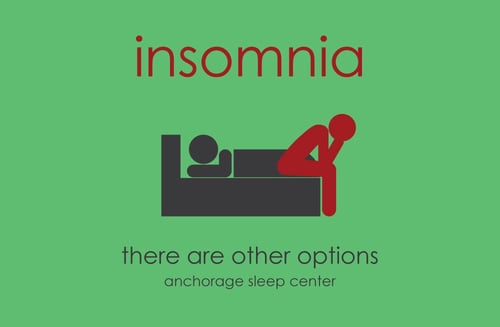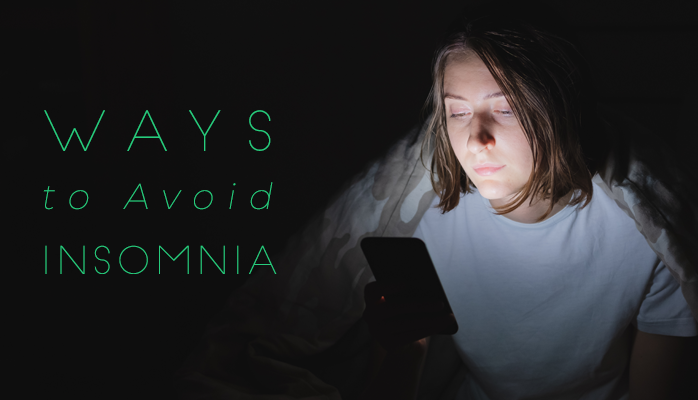Types of Insomnia
If you have ever experienced the torment of insomnia or are currently battling with it, then you understand the frustration and the toll it can take on your ability to lead a normal, happy life. In simple terms, it can make life unbearably miserable. It can transform you into a different version of yourself, affecting your behavior and making you less productive in all aspects of life. It even diminishes your lifespan and reduces the overall quality of life. So, it is without a doubt worth taking proactive measures to avoid it.
However, the issue of insomnia is far from simple. It becomes even more complicated when you consider the fact that there are different types of insomnia.
- Primary insomnia - insomnia that is a direct result of another underlying cause.
- Secondary insomnia - insomnia that occurs without a clear, identifiable issue.
Furthermore, insomnia can manifest in two ways, causing different degrees of suffering:
- Acute insomnia - a short-term condition that lasts for a month or less.
- Chronic insomnia - a long-term condition that occurs at least three times per week for a month or more.
In total, there are four distinct ways in which one can experience insomnia:
- Secondary/acute insomnia - temporary insomnia triggered by a known problem, such as a temporary illness or stress.
- Primary/acute insomnia - temporary insomnia with no discernible reason.
- Secondary/chronic insomnia - chronic insomnia caused by a usually persistent issue like pain or a long-term illness.
- Primary/chronic insomnia - chronic insomnia without any identifiable cause.
Now, let's delve into the various strategies and techniques we can employ to avoid insomnia by addressing its common root causes.
Avoiding Lifestyle Decisions that Can Cause Insomnia
Addressing lifestyle factors is crucial in preventing and managing insomnia, regardless of whether the cause is identifiable or not. Incorporating certain habits into your daily routine can greatly improve your chances of getting a good night's sleep and keeping insomnia at bay. Consider the following lifestyle adjustments:
1. Say no to smoking: Avoiding cigarettes can have a positive impact on your sleep quality.
2. Watch your alcohol and caffeine intake: Refrain from drinking alcohol or consuming excessive caffeine, especially in the hours leading up to bedtime.
3. Ditch the screens before bed: Stay away from electronic devices like TVs, computers, and phones before hitting the hay.
4. Mind your meals: Avoid eating heavy meals right before bedtime, as it can disrupt your sleep.
5. Sync with your body's clock: Establish a consistent sleep schedule that aligns with your natural circadian rhythm.
6. Timing matters: Try not to exercise in the evening, as it can stimulate your body and make it harder to wind down.
7. Create an ideal sleep environment: Make your bedroom a sanctuary by keeping it clean, quiet, dark, and comfortable.
8. Establish a pre-bedtime routine: Engage in relaxing activities before sleep, such as reading or taking a warm bath.
9. Set a regular bedtime: Having a consistent bedtime helps signal to your body that it's time to unwind and prepare for sleep.
While these lifestyle choices may seem straightforward, sticking to them can be challenging. However, by making a conscious effort to implement these habits, you can significantly improve your chances of avoiding insomnia and enjoying restful nights.
Psychology and Insomnia
Maintaining emotional and psychological well-being is vital for achieving quality sleep and avoiding the torment of insomnia. In particular, taking proactive steps to prevent three major factors can work wonders in keeping insomnia at bay:
1. Depression
2. Anxiety
3. Stress (from marriage, job, or health issues)
These three elements have the potential to significantly contribute to or even cause insomnia. Fortunately, there is a wealth of information available online on how to minimize stress, depression, and anxiety. Strategies such as maintaining a healthy diet, engaging in regular exercise, and practicing calming techniques like yoga can all play a role in promoting emotional and psychological health, which in turn can lead to restful nights of sleep.

Avoiding Insomnia as You Age
As we age, our sleep patterns naturally change, and this can lead to an increased likelihood of experiencing insomnia. People over the age of 60-65 often report trouble with sleep, as they may find that their sleep is less restful at night, they get tired earlier, wake up earlier, and feel tired in the middle of the day. These changes are a response to natural hormonal changes that occur as we age, as well as the fact that older individuals are more likely to take medications that can affect sleep. To avoid age-related insomnia, it is important to practice self-awareness with your sleep and adapt your sleep schedule to meet your needs. This could involve being aware that these changes are likely to occur, making room for afternoon naps, and not fighting the change in your circadian rhythm by going to bed and waking up earlier. Additionally, it is important to note that insomnia is more common in women than men due to biological factors such as pregnancy, premenstrual syndrome, and menopause, which can increase the risk of developing insomnia.
Treating Diseases/Conditions That Contribute to Insomnia
Disease can play a critical role in the development of insomnia. As a consequence, fending off certain diseases are an excellent way to stay healthy and avoid insomnia, which in turn can make the disease worse. Some diseases that are particularly linked to insomnia that we can often stave off with good habits are:
- Diabetes
- Kidney disease
- Heart disease
- Restless leg syndrome (RLS)
- Addiction to drugs/alcohol
Chronic pain also plays a significant role in insomnia. There are few good options here, as it’s hard to NOT be in chronic pain. In such cases, consult with your doctor about ways to find sleeping more comfortable.
Avoiding Medications that Contribute to Insomnia
Medications are more popular than ever, which isn’t good for your sleep. Furthermore, taking medications to fix one issue can cause insomnia that opens you up to a whole host of other problems. Limiting or avoiding the following medications can help you avoid insomnia:
- Diet pills
- Steroids
- High blood pressure medications
- Theophylline
- Phenytoin
- Levadopa
- Decongestants
If you live in Alaska and are worried that you are struggling with insomnia, please contact one of our sleep specialists by clicking the orange button below to take a free online sleep test.


